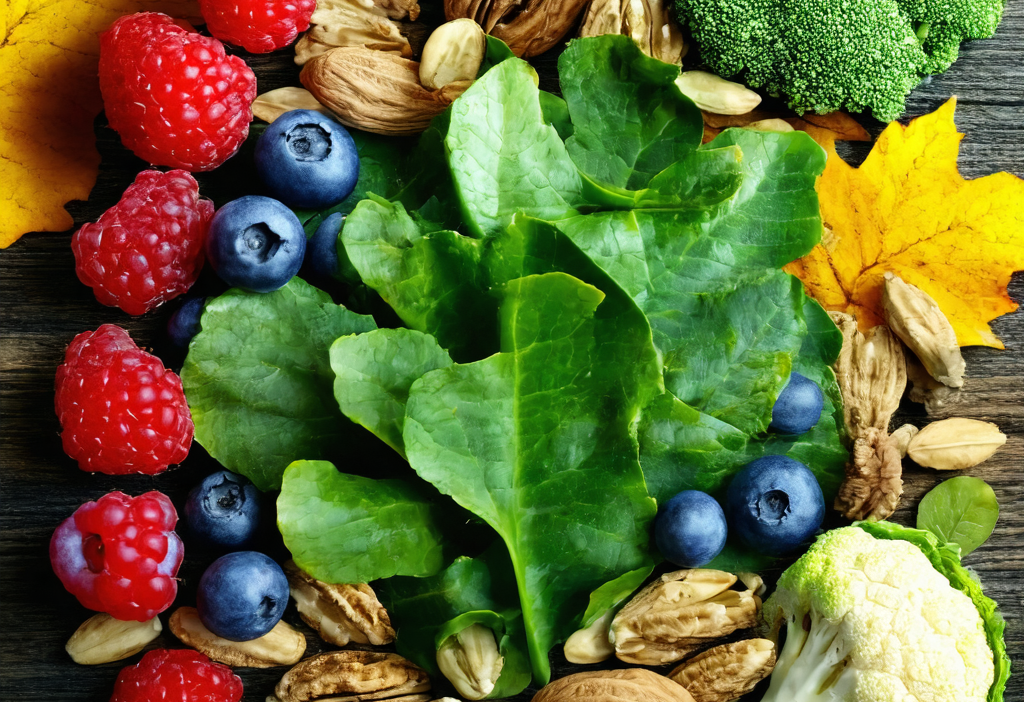Top 10 Superfoods for Optimal Health in 2025
In 2025, the world of nutrition is abuzz with new superfoods that promise to boost your health and well-being. These powerhouse foods are packed with essential nutrients, antioxidants, and other beneficial compounds that can help you achieve optimal health. Let’s dive into the top 10 superfoods you should consider adding to your diet this year.
1. Berries: A burst of antioxidants
Berries like blueberries, strawberries, and raspberries are among the most popular superfoods for a reason. They’re rich in antioxidants, which help protect your body from damage caused by harmful free radicals. These little gems also contain vitamin C, fiber, and other essential nutrients that support heart health and cognitive function. According to the Mayo Clinic, incorporating berries into your diet can help reduce inflammation and lower the risk of chronic diseases.
2. Leafy Greens: The cornerstone of a healthy diet
Leafy greens like spinach, kale, and collard greens are packed with vitamins A, C, and K, as well as minerals like calcium and iron. These vegetables are also rich in antioxidants and fiber, making them a great choice for promoting digestive health and boosting your immune system. The World Health Organization recommends eating plenty of leafy greens to maintain overall health and prevent diseases.
3. Nuts and Seeds: A healthy snack option
Nuts and seeds like almonds, walnuts, chia seeds, and flaxseeds are excellent sources of healthy fats, protein, and fiber. They also contain essential vitamins and minerals that support heart health and help with weight management. The CDC suggests including a handful of nuts or seeds in your daily diet to improve cardiovascular health and reduce inflammation.
4. Fungi: The versatile superfood
Mushrooms, like shiitake and reishi, are not only delicious but also packed with nutrients. They’re a great source of vitamin D, antioxidants, and beta-glucans, which can help boost your immune system and improve heart health. According to the Mayo Clinic, mushrooms can also help lower cholesterol levels and reduce the risk of certain cancers.
5. Fatty Fish: A great source of omega-3s
Fatty fish like salmon, mackerel, and sardines are rich in omega-3 fatty acids, which are essential for brain health and reducing inflammation. These fish also provide high-quality protein and vitamins like B12 and D. The American Heart Association recommends eating fatty fish at least twice a week to improve heart health and reduce the risk of cardiovascular diseases.
6. Whole Grains: A fiber-rich choice
Whole grains like quinoa, brown rice, and oats are excellent sources of dietary fiber, vitamins, and minerals. They help regulate blood sugar levels, improve digestion, and reduce the risk of chronic diseases like diabetes and heart disease. The USDA suggests making at least half of your grain intake whole grains to ensure you’re getting enough nutrients.
7. Herbs and Spices: More than just flavor
Herbs and spices like turmeric, ginger, and cinnamon are not only flavorful but also packed with antioxidants and anti-inflammatory properties. Turmeric, for example, contains curcumin, which has been shown to reduce inflammation and improve brain function. The Healthline highlights the numerous health benefits of incorporating these herbs and spices into your diet.
8. Dairy Alternatives: Creamy and nutritious
Dairy alternatives like almond milk, oat milk, and coconut yogurt are gaining popularity as healthy substitutes for traditional dairy products. They’re often fortified with vitamins and minerals like calcium and vitamin D, making them a great choice for those who are lactose intolerant or looking to reduce their dairy intake. The WebMD suggests choosing unsweetened varieties to avoid unnecessary added sugars.
9. Cruciferous Vegetables: A powerhouse of nutrition
Cruciferous vegetables like broccoli, cauliflower, and Brussels sprouts are rich in vitamins, minerals, and antioxidants. They also contain compounds that help detoxify the body and reduce the risk of certain cancers. The USDA recommends eating a variety of cruciferous vegetables to ensure you’re getting all the essential nutrients they provide.
10. Fermented Foods: Good for gut health
Fermented foods like yogurt, kefir, sauerkraut, and kimchi are excellent sources of probiotics, which support gut health and improve digestion. These beneficial bacteria can also boost your immune system and reduce inflammation. The Healthline highlights the numerous benefits of incorporating fermented foods into your diet for overall health.
Incorporating these superfoods into your diet in 2025 can help you achieve optimal health and well-being. Remember to choose a variety of colors and types to ensure you’re getting all the essential nutrients your body needs. By making small changes to your diet, you can improve your health and enjoy a better quality of life.





